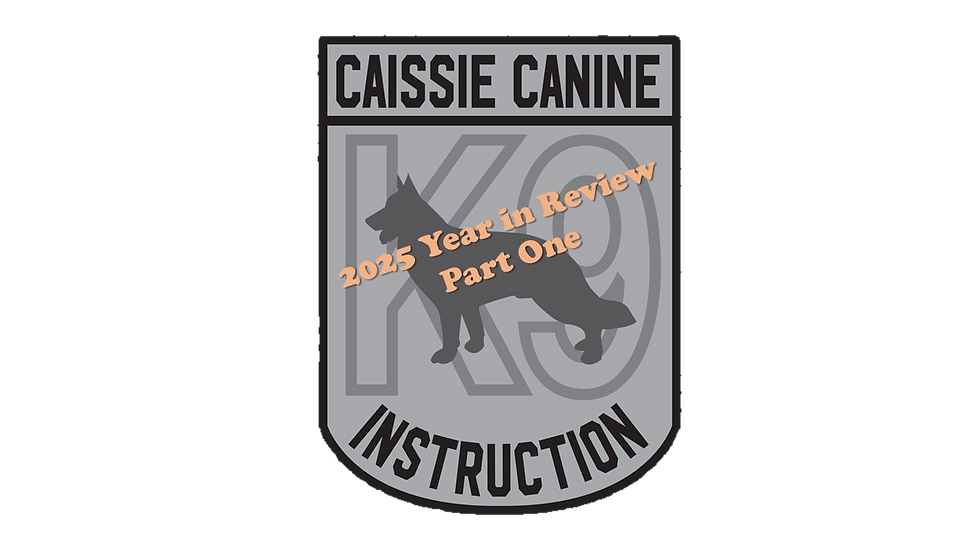Caissie Canine Instruction: Dogs Living with Dementia
- caissiecanineinstr

- Mar 27, 2023
- 2 min read

We begin this week’s “RUFF TAILS” featuring a beautiful German Shepherd named Sheriff.
A dog with a ball. A working German Shepherd. Handsome boy…these phrases describe my 6-year-old Sheriff. He has a big energy drive and loves the outdoors. He is also a dog who needs a job. Sheriff hangs out at my animal hospital during the day keeping my staff busy with games and outdoor fun. Of course, he also enjoys his weekly agility class to help with his high drive and reactivity.

Every day is a training day and having a qualified professional trainer such as Paul has made the world of difference. I never feel alone with Sheriff by my side. His unconditional love makes him the boyfriend I always wanted.

Welcome to Doggie Dialogue

Thank you, Teena, for letting me know, dogs can get dementia. This is known as canine cognitive dysfunction. It is a condition related to the aging of a dog’s brain, which leads to changes in their behaviour. Your dog may begin suffering from confusion and getting disoriented.

Some dogs can get extremely irritable, lose their appetite or interest in playing, and even fail to remember house rules and routines.

Some dogs’ no longer response to their name, and may not want to be petted, or may even start to aimlessly wander and stare at blank walls.
The diagnosis for dementia in dogs must be done by a veterinarian, therefore they can rule out any other potential conditions. Other potential conditions can be mistaken for your dog’s dementia which may include, but not limited to arthritis, urinary tract infection, diabetes, or kidney disorders.
Approximately 50% of dogs over 12 years old can display signs of dementia. These signs can range from mild to severe. The root cause is unknown; however, the disease is often caused by the fact that the brain function is affected by chemical and physical changes that occur in conjunction with the aging process.
Treatment for dogs with dementia may include diet changes, supplements, medication and sometimes surgery.

Your vet will assist you in the best treatment plan for your K9.

All dog owners can help to prevent dementia in dogs, by aiming to maintain a healthy K9 lifestyle by continuing your daily dog walks, offering a balanced diet, teaching your K9 new tricks and offering new experiences.
Caring for a dog with dementia requires a lot of patience. As your dog becomes confused and disoriented there are things you can do to help make things easier for your dog. Always keeping their water, food and bed in the same place will help.

Orthopedic dog beds are often the best option. Exercise is still important, but moderately.

A gentle walk allows your dog to take in new smells and sights which are wonderful for mental stimulation. Keeping the brain active can be helpful.

Using a snuffle mat to encourage your dog to forage or stuffing a KONG with a treat can be fun for your dog and will keep them engaged.
The key is to help make your dog feel safe, secure and loved during this difficult time.





Comments